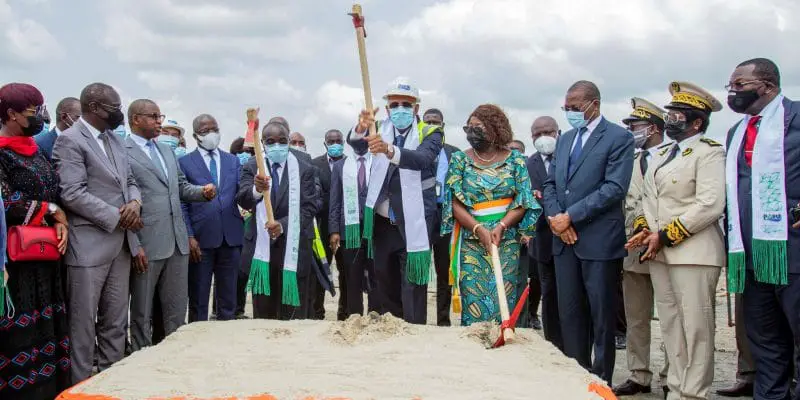Patrick Achi, the Ivorian prime minister, recently inaugurated the Urban Sanitation & Resilience (PARU) Project in Abidjan which is aimed at improving the rainwater’s flow in a bid to reduce floods in the host region.
For several years, the Ivory Coast’s economic capital has reportedly been prone to floods, which have been exacerbated by climate change. The one in 2018 was the most severe, affecting numerous people and material damages.
Significance of the project
Recently launched, Abobo is the Urban Sanitation & Resilience (PARU) Project’s initial intervention zone. This is expected to be expanded to Grand-Bassam, Ouangolodougou, Assinie, Korhogo, Jacqueville, Yamoussoukro, Bouaké, Duékoué, San-Pedro, Daloa, and other councils.
Also Read: Drainage and Sanitation Project in Bonoua Industrial Zone, Ivory Coast, Launched
The new primary and secondary drainage systems for rainwater evacuation connected with road construction, along with early warning systems for floods, would benefit each of these locations. Training and the provision of specific digital technology would help boost the capacities of entities responsible for sanitation and urban planning.
The inauguration of the project comes less than two months after an identical project in Abidjan that will benefit 3.5 million people was initiated. However, the project is expected to be executed over six years, providing jobs for youth and women, particularly in the areas of water collection, recycling, and irrigation system construction.
Subsidy for the implementation of the PARU Project
The International Finance Association (IDA), an international financial institution and a subsidiary of the World Bank Group that offers concessional loans and grants to the world’s poorest developing countries, will provide the Ivorian government with slightly over US$ 262M to facilitate the implementation of the project under an agreement signed by both institutions back in June 2020.

